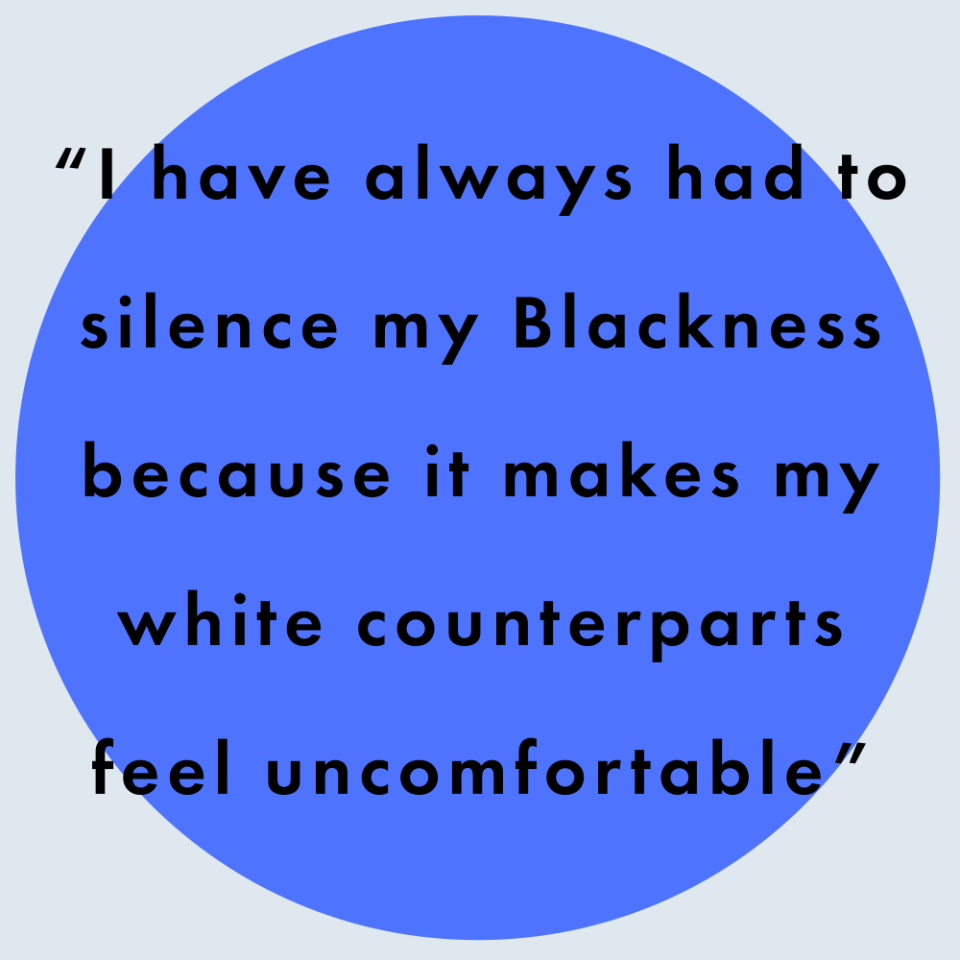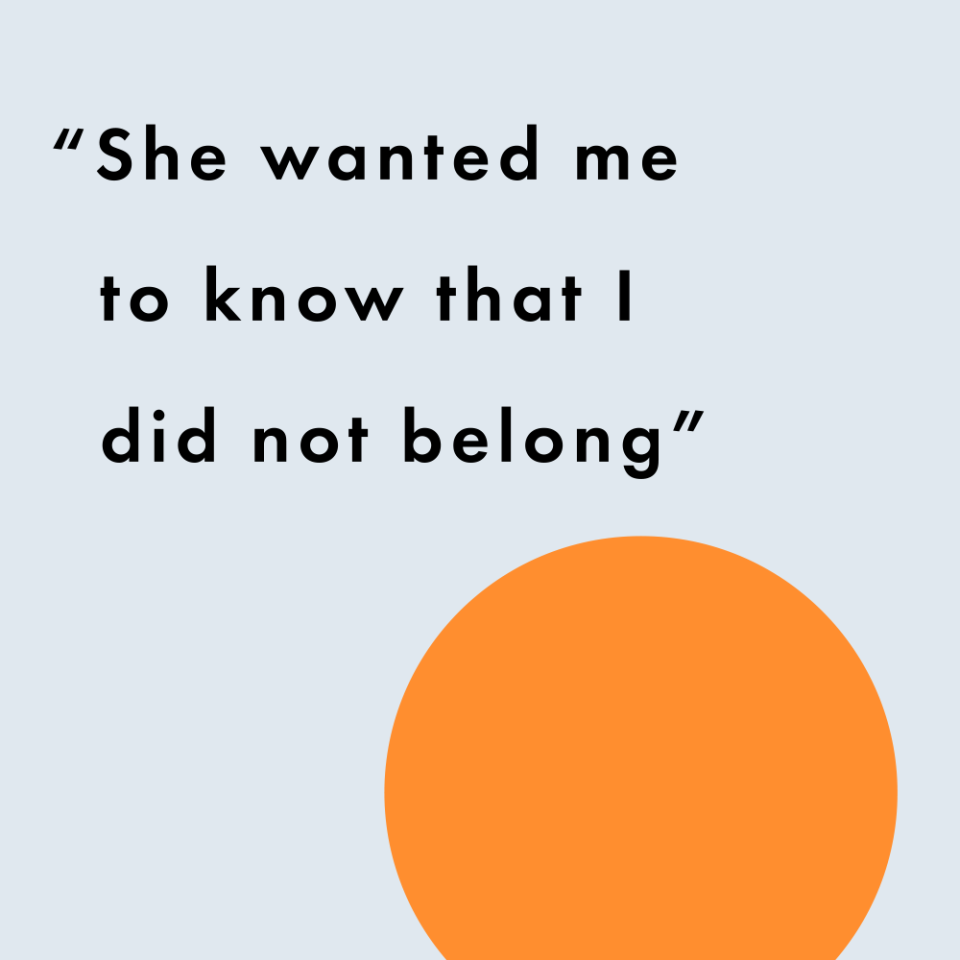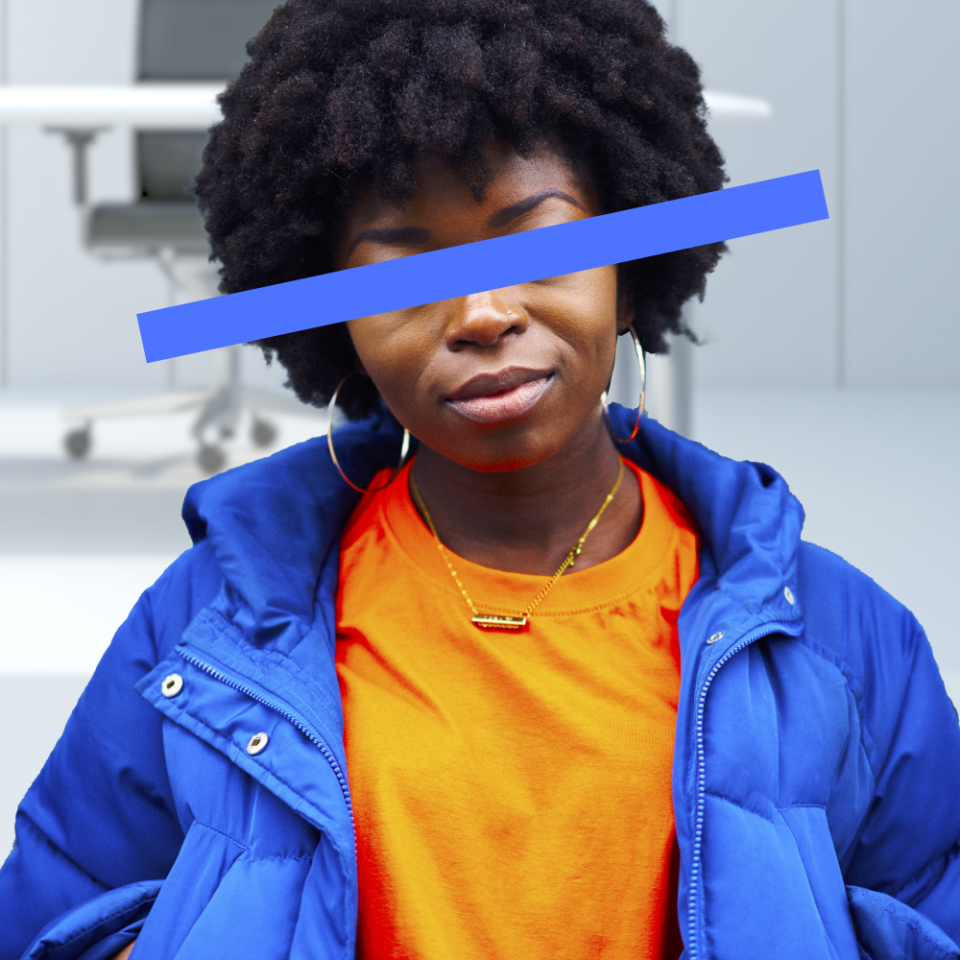‘Imposter syndrome takes on a whole new meaning for women of colour’


Standing in the grounds of a Sussex private school, I was met with redbrick period-buildings nestled within green hills; a far cry from the brutalist architecture of the urban state school I attended, flanked by a dual carriage way, a cinema and a Pizza Hut. It was my first job interview for a teaching role after graduating from the best university in the country for my subject. I was excited to begin my career but taking in the school's lead windows and stained-glass, self-doubt sat heavily in my stomach. ‘Am I good enough to teach somewhere like this?’ I thought to myself, an immigrant whose first language wasn’t English. ‘What if I’m not up to the task?’
I was interviewed along with a group of other candidates, the youngest in the room and the only person of colour. The heaviness in my stomach grew. Part way through the day, only two were selected to take part in a final interview and I was one of them. On leaving, one of the rejected candidates told me that they were clearly ‘ticking a box’ and looking for a ‘token hire’. She wanted me to know that I did not belong. My mind walked a well-trodden path littered with: 'You’re taking it the wrong way, that’s not what I meant, and trouble-maker', so my reaction was reflexive - to keep silent, not making a fuss. Experiences like this have always left me questioning myself and doubting the legitimacy of my feelings. ‘Maybe I’m taking things too seriously’, I thought. I was offered the job but didn’t take it.

It wasn’t until almost a decade later, when I turned 30, that I began to interrogate that day, and how imposter syndrome featured heavily in it. Originally called ‘Imposter Phenomenon’ in 1978, psychologists Suzanne Imes and Pauline Rose Clance stated that: “Despite outstanding academic and professional accomplishments, women who experience the imposter phenomenon persist in believing that they are really not bright and have fooled anyone who thinks otherwise.” Interestingly, the work carried out by the psychologists was based on “primarily white middle-to-upper-class” women.
For women of colour like myself, a pervasive feeling that you are an imposter is not necessarily something that comes just from within - self-doubt and low self-esteem. It stems from deeper societal issues; external factors like racial bias and systemic oppression, which are not always acknowledged. Clare, 34, an Assistant Head and English Lead told me that when she mentioned to a white male colleague that imposter syndrome peaks in spaces such as English training courses due to a lack of diversity, he refused to recognise this: “He said that imposter syndrome is all in my head. He said I needed to work on my self-esteem," Clare remembers.
Imposter thinking can affect women from ethnically diverse backgrounds in different ways to their female counterparts of white heritage, explains Sunita Harley, a podcaster, confidence and career coach and inclusion consultant who also runs the female network Lucky Things: "One of the things I mention at my online Navigating Imposter Thinking workshops is that we all need to define what imposter thinking means to us as individuals. For me, I am a British South Asian female who would unhelpfully compare my own career progress to white colleagues who are the majority in the workspace,” Sunita says.

“A number of us from ethnically diverse backgrounds are told by our parents when growing up: ‘Keep your head down and work twice as hard due to your ethnicity.’ So, I don't just need to prove my skills, expertise and experience as a female, but also as a senior colleague who is from a South Asian background, in case I have to dispel any stereotypes or assumptions due to my visible difference. This can still be an issue at times. However, now that I'm more established in my career, I'm better equipped to look after my own confidence and any annoying imposter thinking," Sunita adds.
I can relate to the need to disprove assumptions made about me due to my background. Having to learn English as a second language and coming from a working-class background, assimilating became key to survival in my working life. 'Code-switching’, coined by sociolinguistic Einar Haugen in 1954, became another reflexive skill. Originally defined as switching from one language/ linguistic code to another depending on social or conversational contexts, it is now commonly used to describe the way people of colour adapt their language in certain settings such as the workplace in order to integrate, survive and thrive.
When working in London theatres in my 20s, the vibe was decidedly middle-class. During meetings, my mind would instinctively reach for a word that best suited my meaning, before quickly scrambling for a more appropriate one that wouldn’t leave me vulnerable to negative judgement. Essential as I’ve found this practice to be, feeling like I had to assess my surroundings and change my vocabulary and register in order to be heard rather than dismissed was exhausting, and I began to feel inauthentic, amplifying feelings of imposter syndrome.

Someone else who’s experienced similar situations at work is Nicky, 29, a property and lettings agency professional who feels the multiple pressures of being a Black woman within a white dominated environment: “I’ve always experienced microaggressions, even in the interview process. I have a British sounding name so when employers see my CV, my strong skill set and the companies I’ve worked for, you can tell that they are shocked that I’m a dark-skinned Black woman when I show up for interviews, so it always starts from there," Nicky says.
“I remember once when a co-worker spoke openly about taking two Black people on a property viewing. Another colleague said: ‘Were they a Caramac or a Marathon Bar?’ comparing skin tone to light and dark chocolate bars, and everyone started laughing. They were all white I was the only Black person in the office. It made me feel so angry. To them it was ‘banter’ and I couldn’t speak out. I have always had to silence my Blackness because it makes my white counterparts feel uncomfortable. If I react a certain way, I’m automatically the ‘angry Black woman,'” she says.

This silencing of people of colour in the workplace perpetuates imposter syndrome, and it’s all too common. “Imposter syndrome goes hand in hand with gaslighting and our colonial past. Being considered as inferior and the idea that we should be thankful to be in the UK is a message we receive overtly and covertly and impacts how we are treated on a micro and macro level,” says Dr Sabinah Janally, Clinical Psychologist and founder of Women Adventurers of Colour.
As for the impact of this? It’s long lasting. Fehmida, a Muslim woman in her thirties has experienced racism at work, when colleagues have said things like: ‘What are you having for tea tonight? Let me guess, you’ll be having a curry’ to: ‘Look at the colour of me - I’m nearly as dark as you now, I best get scrubbing.'
“I don’t think people realise these things have a profound effect on people’s health and wellbeing. These [comments] that people casually throw around in passing conversation – they take their toll on someone’s mental health,” Fehmida says. Experiencing similar microaggressions had a negative impact on way I viewed myself and the how I approached my career, holding me back from going for jobs because I believed I wasn’t good enough or that the spaces I wanted to inhabit did not want me.
It is, of course, the responsibility of those in positions of power to diversify workplaces and provide training on unconscious bias. This is a key step in tackling the external elements that not only fuel imposter thinking, but which explicitly discriminate against people of colour. But as well as that, women of colour having an understanding of these external factors can allow them to then work on gaining confidence from within. Career Coach Sunita says that when doing this work, it’s important for WoC to actively remind themselves of their strengths. “Try to think about which skill or task is making you feel like an imposter, then ask a friend or colleague to remind you about all the wonderful skills and achievements that you actually possess,” she recommends.

When I went for my first teaching interview at that leafy private school, the terms ‘microaggression’ and ‘unconscious bias’ were not common, and the concept of centring white-fragility (the defensiveness/ discomfort of a white person when presented with information on racial inequality and injustice) was alien to me. But all these years on, having the vocabulary to talk about my experience has helped me to separate internal feelings from environmental pressures. Since I could reason that a major contributing factor towards my imposter feelings were society’s issues, not mine, I’ve felt more motivated to achieve career goals I had previously held back from. With a growing number of people speaking out about this issue, and more attention on why it must change, I have hope that in the future it’ll be a better story for women of colour embarking on their careers.
You Might Also Like

 Yahoo Finance
Yahoo Finance 